
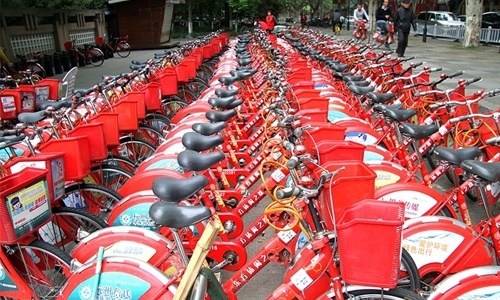
So, right off the bat, if you don’t know what a bike-share is, it’s a program in which many bicycle stations are set up and people can rent a bike to use for a certain time frame and return it at a different station. It’s seen in many cities where cycling infrastructure is growing and is considered an extremely important part of making cycling more accessible to people.
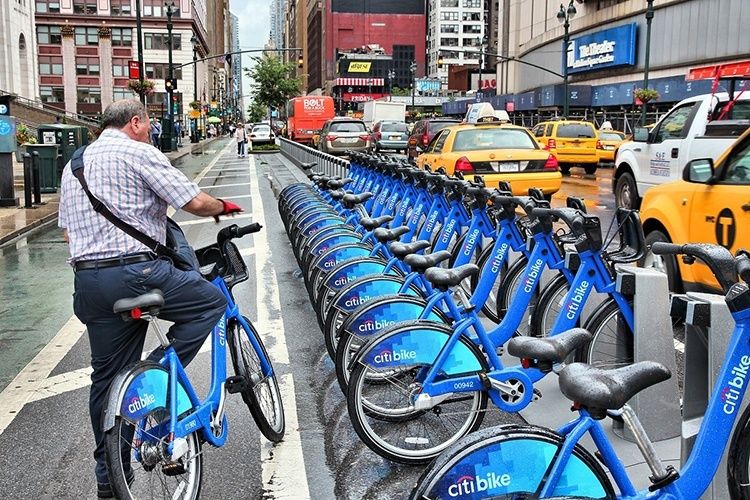
As cycling becomes more and more welcomed as a dominant method of inner-city travel in the first world, we’re going to see more and more of these bike shares, as well as seeing the existing ones expand (hopefully they’ll be expanding my local bike share—there never seems to be a bike available when I need it).
These days, everyone knows Europe is basically the king when it comes to cycling infrastructure, so logically one would assume all the best bike share programs must also be in Europe. While many of them are, the rest of the world has also been stepping their cycling game up in recent decades. Below you’ll find a list of the world’s eight best bike share programs by city. If you’re expecting Europe to dominate this list, then #1 might come as a shock to you.
1. Hangzhou, China
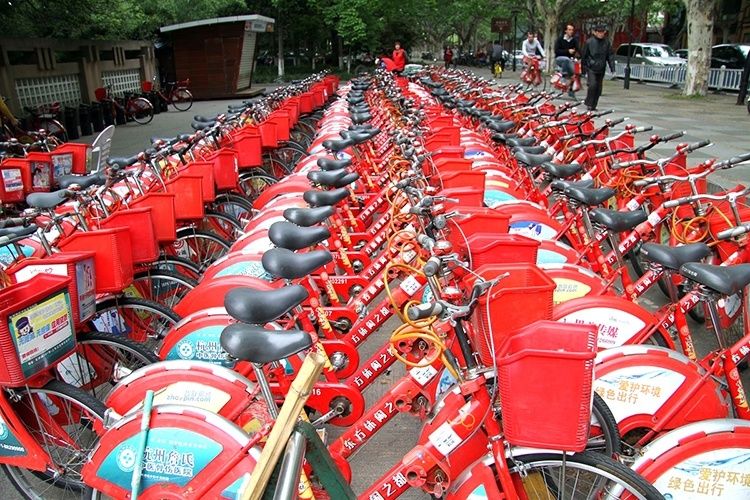
The city of Hangzhou, with a population of around seven million, boasts the world’s largest bike share program. In fact, no other bike share on Earth touches the sheer numbers they have. Let’s take a tally. There are somewhere between 66,500 and 78,000 bicycles in their program, scattered across around 2,700 stations.
There are so many city bikes that, in the downtown of the city, you can’t go five minutes without seeing one. But it gets better; the program is so successful that the local government has invested money to allow the Hangzhou Public Transport Corporation to expand. The invested amount is roughly the equivalent of 18.5 million UK pounds.
Because of the investment, the company has predicted that they will be operating with 175,000 bikes by 2020. Considering the program only started in 2008, I’d consider that some explosive expansion.
Despite the program’s insane success, there has been some minor controversy surrounding it; in 2010 an app was created which told users how many bikes were available at every station. While hailed among users as a real life-saver, Hangzhou Public Bicycle’s staff were not impressed. They claimed the data was taken illegally by the developers and in 2012 they blocked Zhang Guangyu, the developers, from accessing the information, rendering the app useless.
2. Taiyuan, China
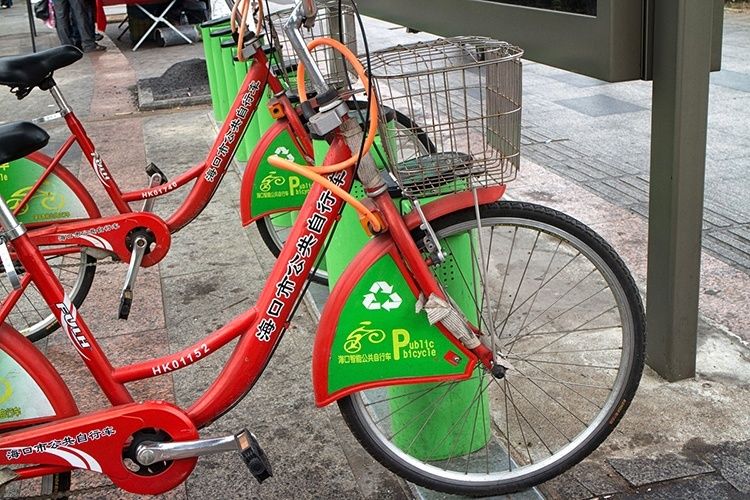
Europe may be the main innovators when it comes to cycling infrastructure, but in terms of sheer volume and reach, China’s leading the way. I suppose it’s not really fair, since China’s population is nearly double the entire population of Europe, but Taiyuan is worth mentioning for its position as the current runner up to Hangzhou.
Part of the reason Taiyuan’s bike share belongs on this list is the fact that it’s expanded so much in so little time. In fact, it’s expanded so rapidly that nobody actually knows how many bikes are in their circulation, with estimates ranging from 20,000 to an impressive 41,000 and around 1,000 stations. And it is still growing.
And it’s pretty easy to understand why too; it’s simple to use the bikes and it’s cheap. In fact, it’s free as long as you use the bike for under an hour.
3. Paris, France
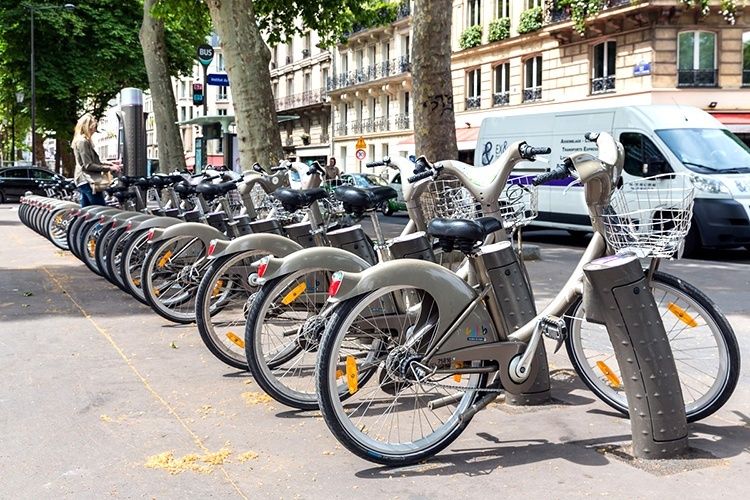
When people call it the city of love, I don’t think a love of bicycles is what they have in mind. However, Paris earns the number three spot on this list because of how awesome their bike share program is. It’s not surprising that Paris has such a high spot here; France is one of the hearts of the international cycling community and is a major player in cycling history.
The bike sharing program, called Vélib’, is the largest bike share outside of China, with around 20,000 bikes and more than 1,200 stations in their fleet. Bertrand Delanoë, who served as the mayor of Paris from 2001 to 2014, championed the creation of the bike share, which first debuted in July, 2007.
The program is wildly successful and has set a great example for the rest of the world to follow. In 2011, its daily ridership was roughly 86,000 people and that number has only grown since then. Vélib’ is often the program other cities point to when they attempt to sell the idea of a bike share in their municipality.
Vélib’ is not without its problems however. There is a rampant problem with theft and vandalism. Many bikes are discarded, stripped for parts and/or abandoned in a state of disrepair. Many are stolen and sold elsewhere, with some of the bikes turning up in places as far away as Romania. The costs associated with the theft and vandalism were actually so much higher than originally projected that the program ended up losing money in its first three years in operation.
Despite that, the program has balanced itself out and is now considered a huge success. Delanoë himself considers it one of the biggest triumphs of his political career.

 233k
233k  41k
41k  Subscribe
Subscribe 